| Spotlight
International Symposium on Biotechnology held
Mahdin Mahboob
Research and applications of biotechnology in the fields of agriculture, medicine and fisheries are gradually coming to the centre stage. Climate change due to global warming, topographical change and other determining factors are necessitating intense research in improving the qualities, lifetime and yieldability of crops. In view of this, BRAC University and the International Centre for Genetic Engineering and Biotechnology (ICGEB) have jointly organized an International Symposium on Regulatory and Safety Issues in Commercialization of Biotechnology Research in Developing Countries in Dhaka- between the 2nd-4th of this month.
The Symposium covered topics on technology transfer; IP and IPR; Biosafety; Bioethics; Clinical and Field Trials and Regulatory Affairs which are considered very relevant to research, development and commercial application of biotechnology in developing countries.
Dr. C S Karim, Adviser, Ministry of Agriculture, Government of the People's Republic of Bangladesh was the Chief Guest at the inaugural session while Mr. Manik Lal Samaddar, Special Assistant to the Chief Adviser, Ministry of Science and ICT, Government of the People's Republic of Bangladesh was present as the Special Guest.
The symposium was funded by Ministry of Science and Information Technology (GoB), Third World Academy of Sciences (TWAS) Bangladesh Academy of Sciences, the Center for Intellectual Property, CIP (Sweden), Incepta Pharmacuticals Limited, ICDDR,B and a number of other local organizations.
The main purpose of the symposium was to provide relevant information and to educate practising biotechnologists and other professionals in these areas so that they can make informed decisions based on international practices.
Invited foreign speakers included Prof. Virander Chauhan and Dr. Siva Reddy of ICGEB, Delhi, Mr. Decio Ripandelli and Dr. Mark Tepfer of ICGEB, Trieste and Prof. Ananda Chakravarty of University of Illinios among others. Local speakers included Prof. A A Azad, Prof. Naiyyum Chowdhury (BRAC University), Dr. Firdausi Quadri and Dr. Michael Behan (ICDDR,B), Prof. Haseena Khan and Prof. Rakha Hari Sarker (University of Dhaka), Dr Liakat Ali and Dr Azad Khan (BIRDEM) among others.
A seminar on 'Oxygen - A Friend and Foe’
Sarah Z H
Department of Life Sciences and Department of Pharmacy Department of North South University on 1 December arranged a seminar titled 'Oxygen-A Friend and Foe' which was attended by two special speakers Prof. Emeritus Kozi Asada, Kyoto University, Japan and Dr.Konrad Sandhoff, University of Bonn, Germany. The first half of the day was highlighted by a poster presentation session where 40 posters under two categories-Pharmacy and Biotechnology were presented by the faculties of the host university, Dhaka University, Jahangirnagar University, BIRDEM and ICDDR,B. Vice chancellor of North South University, Dr.Hafiz G.A Siddique was present at the poster presentation. A few of these posters were 'Heregulin induction of HSP expression, anchorage independent growth and protection from apoptosis require hsfl' by Dr. Md Abdul Khaleque, 'Genomic analysis of ovine herpes virus-2: bio informatics approach' by Md. Maqsud Hossain, 'Analysis of B-carotene from composite food sample containing FSP and WFSP' by Nusrat Jahan and Prof. SAM Khairul Bashar, 'Characterizing the expression of the Meox 2 homeobox gene in the head of the developing mouse embryo' by Rifath Mohsen and 'Mechanism of insulin secretary effects of traditional plant extract PE 027' by Dr. JMA Hannan.
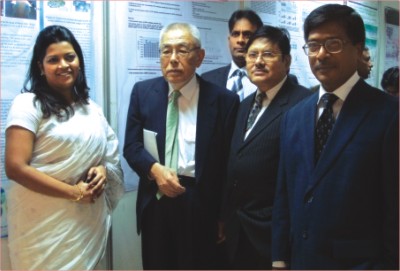
The seminar started after the lunch with Rifath Mohsen welcoming the guests and the participants from the previous session. Pro-Vice chancellor SAM Khairul Bashar thanked the participating teams from the guest institutions as he started his speech. He informed the audience about the coming into being of the Life Sciences department and the available courses. He also briefed everyone a bit about the Pharmacy Department and announced that NSU has successfully launched Masters program in Pharmacy. About the posters that were presented earlier, Prof Bashar said that all the posters are of international standard and can make potential contribution to research in national level. He also talked about the success of Bangladeshi students in this sector and encouraged the students of this discipline to engage themselves in attending more seminars and symposiums to keep themselves updated.
Novartis International BioCamp - 2008
Rasidul Hasan & Kazi Ali Tahzeeb Novartis International Biotechnology Leadership Camp (BioCamp) is the pioneering seminar introduced by Novartis that brings young talents from different universities around the globe closer to the biotechnology sector. Each year, the program trains Masters and Post-Doctoral students from across the world bringing the biotechnology and pharmaceutical industry closer to the young talents. The event is open to students from natural sciences and business administration fields. This was the second year in which Bangladesh participated in the event. Hosted by Hong Kong, there were representatives from China, Japan, Indonesia, Malaysia, Philippines, Singapore, Korea, India, Pakistan, Slovenia, Germany, Egypt, Turkey, Mexico, Russia, Taiwan and some others.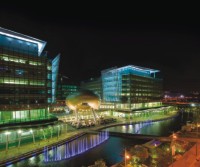
In August this year, Novartis (Bangladesh) invited applications from the leading universities of the country. Amongst 68 preliminary candidates, 6 were selected through an analytical and brainstorming session. Subsequently, the short-listed six applicants were interviewed by a panel of judges comprising of university faculty members and officials of Novartis.
The next two months was a combination of reading, learning, coaching by experts, and reading tons of journal papers. One day rolled into another but both of us were charged up and had only one date in mind, the 23rd of October, the day we were to fly for Hong Kong. We reached Hong Kong very early in the morning on October 23.
The first day of networking session brought us face to face with people from many countries and cultures. But the common thing in all of us was the zeal to learn and explore the field of business and biotechnology further.
For both of us it was an exhilarating experience and it also had the enormous responsibility of representing our country.
From 24 to 27 October, 57 students from 20 countries and leading biotechnology experts were drawn closer to fuel further learning, discussion and interaction about global leadership, innovation and career paths in biotechnology. All these might sound quite mind-numbing but on the contrary the camp was a perfect blend of excitement, challenges, anticipation, and diversity. 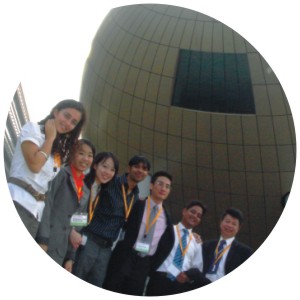
The inauguration ceremony took place on the 25th, opened by Vincent Lee - Director, School of Pharmacy, the Chinese University of Hong Kong - and John C. Tsang, Financial Secretary of Hong Kong. The speakers from Novartis, Paul Herrling, Head of Corporate Research, and Marjorie Yang, Member of the Board of Directors underlined the fact that BioCamp is a prominent example of the Novartis commitment to promoting excellence in scientific education vis-a-vis the innovation in research and development. Of particular interest for the students were the presentations from Paul Herrling, George Daley from Harvard Medical School and Huanming Yang from the Beijing Genomics Institute, who provided a scientific update on research in biotechnology, whilst Corinne Savill, Head of BD&L, Search and Evaluation at Novartis, gave an overview on how to fund innovation.
Apart from these presentations, each group was assigned with a disease area. The task of Rasidul's group was to develop a cure for the Parkinson's disease. We targeted the disease through mesenchymal stem cell therapy, which we had learnt from Professor George Daley of Harvard Medical School. Tahzeeb's group was assigned with macular degeneration. The competition included preparation of a business plan by each group for a particular drug that would cure the assigned disease. Since both of us were business graduates, we had little to do with drug development but we learnt about the diseases earlier as some extensive preparatory orientation was given by Novartis (Bangladesh) Limited prior to the competition. Since the entire presentation was on the business development process, we had to lead the entire team from the very beginning in order to make them more focused on making the plan more viable for an investment. When we started interacting with the students it became clear that our education on qualitative level is at par with others, only thing is that we lack exposure to technological advancement and hands on experience. 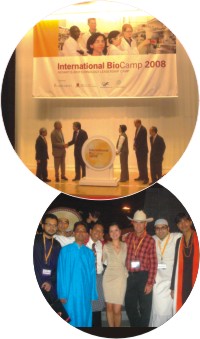
On the final day, we made our presentation and in the end, the students voted one of our two groups as the Best Participating Team. I (Rasidul Hasan) felt very joyous not only because of the fact that I achieved the award but also because I am a Bangladeshi who received such a distinction.
During this four-day event, we worked with our peers, exchanged ideas and knowledge, and sew the seeds of future cooperation and synergy. This experience has enriched us and equipped us with the vision to better our position in the corporate world. Novartis BioCamp is the place where we could benchmark ourselves with others. This feeling will certainly enhance our beliefs and broaden our vision.
To consolidate this through pointers we would say that the camp has helped us in following manner
- familiarized ourselves with current and future challenges of Biotechnology
- nudged our creativity in developing business ideas for international markets and instilled the concept of entrepreneur risk management
- given us the opportunity to network and learn from leading business and biotechnology experts
We also had the opportunity to explore Hong Kong through a short trip. Amongst the places that we visited were a historic temple that dates back to thousand years, the harbour, the old territory and the mountain top (locally known as 'the peak'). Hong Kong is a lovely city with a lot of skyscrapers all around. The night-life of Hong Kong is marvellous -- the streets are secure, and you will come across crowds even in the mid night.
Towards the end, we had a culture show called the “Culture Night”. The culture night was another exciting part of BioCamp that added colour and vibrancy to the event. After a whole day of lectures, brainstorming, and presentations, it was very refreshing for each of the participants.
This was an event where participants from each country presented the culture and heritage of their respective countries through various means like dance, song, drama, and audio-visual presentation. Although this was not a competitive event, each country's participants tried their utmost to project their country to the best of their ability in front of a global audience. This particular event made us realize how exhilarating it is to illustrate Bangladesh in front of a crowd that has so sketchy an idea of our country. The place, where the cultural night was held, was a gem of a theatre. It was an open-air theatre with enchanting lighting with a superb sound system making a dazzling atmosphere inside the science park. From a distance, the ambience of different lights would make this place appear very inventive and refined. Earlier, we had made an audio-visual presentation on Bangladesh for this culture night. Honestly speaking, we were a bit nervous sensing as to whether the audience would like our presentation or not. Each country had a time slot of 5 minutes and we felt as if it was in the spur of a moment that we finished our time slot. As we were getting down from the stage, people came by us and appreciated our effort and some of them even expressed their intention to visit our country soon.
We were mesmerized to witness the diversity of cultures of the participating countries. Each country is unique and so are its people. It felt as if we were having a world tour sitting in one place; the culture night broadened our knowledge of the cross-cultural heritage and history.
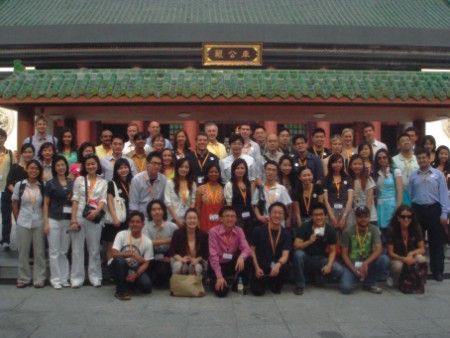
One has to admit that greater participation in such a conference will enable our students to gain more knowledge and expertise. And hopefully this year's success story along with previous ones will help them keep the door open for more of our young minds to have similar exposures in the days ahead.
The writers are students of MBA at IBA and welcome feedback at rasidul_bau@yahoo.com and tahzeeb_yes@yahoo.com
13th International Biotechnology Symposium (IBS)
Md. Aynal Haque Rana Another team of Biotechnology from UODA has recently participated in '13thInternational Biotechnology Symposium and Exhibition', which was held from 12-17 October '08 at Dalian city in China. It was a great hub of biotechnologists from all around the world.
The organizers included IBS (International biotechnology symposium) 2008: Chinese academy of science (CAS), Chinese academy of engineering (CAE), Ministries of Education and of science and technology of China, and National Development and Reform commission of China (NDRC) and the co-organizer: Dalian Institute of Chemical Physics (DICP-CAS), Dalian University of Technology, East China University of science and Technology and Municipal Government of Dalian. They gave their excellent effort to make the symposium successfully in the beautiful resort city.

All of our scientific papers were issued in the top Biotechnology journal “Journal of Biotechnology" at the 13th International Biotechnology Symposium 2008 (IBS 2008). Two members from our biotech team Mr. Ashraful Alam Sharif and Mr. Maruf Hasan Tanim presented their papers at "poster presentation" section. The total symposium was divided into 9 sections- 1.Systems biology, 2.Tissue engineering and cell cultivation 3.Medical biotechnology 4.Agricultural biotechnology 5. Industrial biotechnology 6. Marine biotechnology 7. Environmental biotechnology 8. Food biotechnology 9.Bio-safety and bio-economy.
 Section five was about industrial biotechnology and one third of the total submissions were submitted in this section. In view of the unprecedented pressures from fossil fuels depletion and environmental pollution today, this trend reflects the massive industrial demands for green, clean production biotechnologies based on renewable biological resources. The second highest submission was to section seven, Environmental Biotechnology, which again reflects the global concerns on environments. Section one, system biology followed closely behind, which indicates a rapid development of basic biological sciences at the system level, which will surely lead to considerable applications in Biotechnology for the years to come. Section five was about industrial biotechnology and one third of the total submissions were submitted in this section. In view of the unprecedented pressures from fossil fuels depletion and environmental pollution today, this trend reflects the massive industrial demands for green, clean production biotechnologies based on renewable biological resources. The second highest submission was to section seven, Environmental Biotechnology, which again reflects the global concerns on environments. Section one, system biology followed closely behind, which indicates a rapid development of basic biological sciences at the system level, which will surely lead to considerable applications in Biotechnology for the years to come.
Our participants presented their poster on 14th and 15th October respectively. Of the nine posters at the symposium presented by our team, six of them were under Agricultural biotechnology section and the remaining three papers were under Environmental Biotechnology. All of these nine papers were highly appreciated by Prof. Fengwu Bai from Dalin University of Technology and other scientists from all around the world. It is hard to imagine how advanced the Chinese people have become in terms of technology. They try to utilize their huge educated human resource by engaging them with technology. After having successful trips to Pakistan, Japan and Egypt our young researchers have done very well in China as well. Their nine papers were on-
· Micropopagation of Datura metal L a commonly used medicinal plant.
· Hormonal effects on in vitro multiple shoot proliferation of Wedelia chinensis L.
· Clonal propagation of Paederia foetida L.
· Hormonal effect of callus induction of Abrus precatorius L, a widely used medicinal plant.
· Effect on Drinking Arsenic contaminated water on spontaneous absorption and neonation mortality
· Corellation between Arsenic Exposure and IQ levels of school going children
· Accumulation of arsenic in some winter vegetatives of Bangladesh when irrigated with arsenic contaminated ground water.
· Clonal propagation of banana.
· In vitro propagation of Achyranthes aspera: Effects of cytokinins and auxins
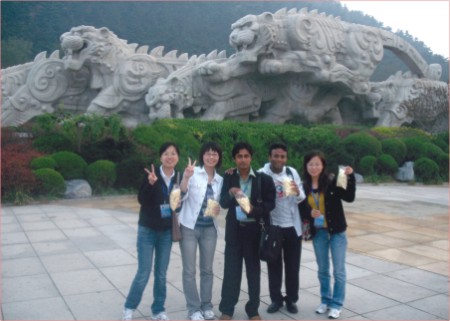
In the symposium, researchers came from China, USA, UK, Germany, Japan, Switzerland, New Zealand, Malaysia, Philippines, Greece, Denmark, India, Pakistan, Iran, France and Russia. Their presence made Dalian a huge congregation of people from different countries and cultures.
Student of Dept of Molecular Medicine & Bioinformatics, UODACopyright
(R) thedailystar.net 2008 |

